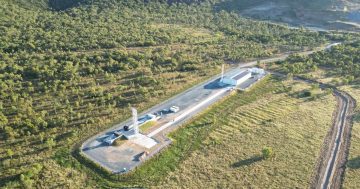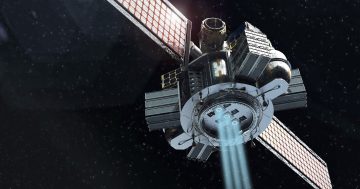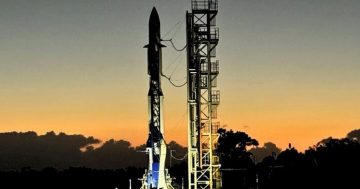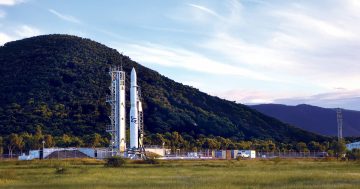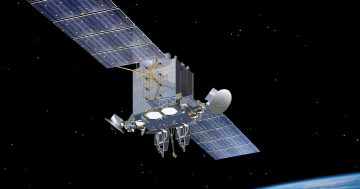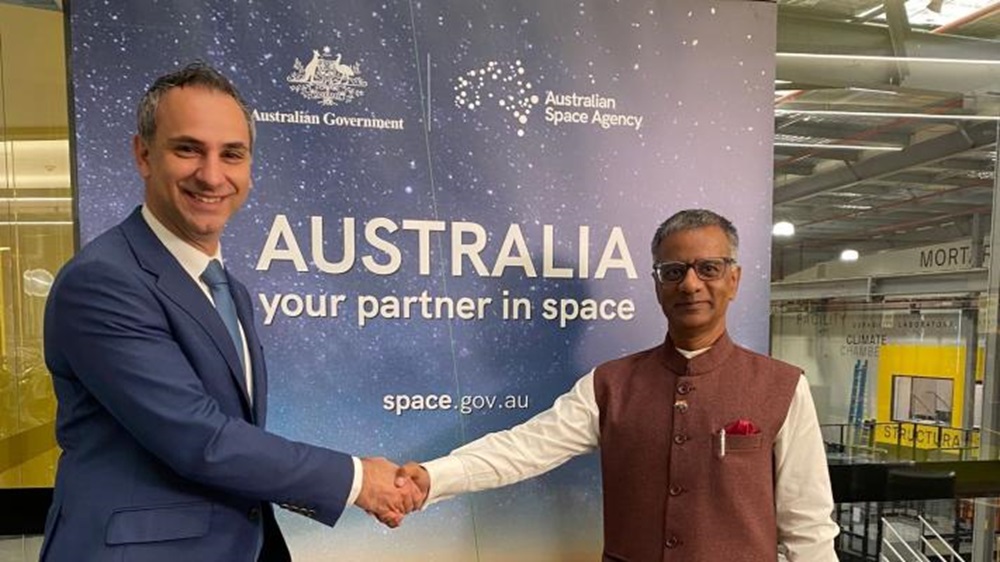
Head of the Australian Space Agency Enrico Palermo and High Commissioner of India to Australia His Excellency Mr Gopal Baglay. Photo: ASA.
Three collaborative space programs being developed under the International Space Investment India Projects program have been awarded $18 million in investment funding by the Australian Government.
The programs are being developed by a number of Australian and Indian partners, and are designed to build commercial links between Australian industry and the Indian Space Research Organisation and wider Indian space sector.
The three funding recipients are:
- Western Australia-based LatConnect60 which has been awarded $5.8 million to develop and build a low Earth orbit (LEO) satellite in Australia to collect information on carbon emissions at a very high resolution. The satellite will be launched from India and aims to significantly lower the cost of data acquisition and insight generation of key indicators like methane and carbon dioxide
- Space Machines Company from NSW has been awarded $8.5 million for Space MAITRI (Mission for Australia-India’s Technology, Research and Innovation) which is demonstrating advanced concepts such as on-orbit transportation and space debris mitigation. Space MAITRI will incorporate an Australian-built orbital servicing vehicle, sent into space on a dedicated Indian launcher
- Canberra-based Skykraft has been awarded $3.7 million to propose and validate a new position, navigation and timing system. The ultimate aim is to better connect large-scale satellite constellations, which are vital for Earth observation and forecasting weather.
The projects align with agreed priority areas of strategic importance to both nations which were developed from consultation sessions led by the Australian Space Agency (ASA) and 500 stakeholders.
Australia and India have a long history of collaboration in space, including Australia helping track India’s historic landing on the south pole of the moon in 2023, and supporting its upcoming Gaganyaan human space flight mission.
The first round of the International Space Investment India Projects program was announced by Prime Minister Anthony Albanese and Prime Minister Shri Narendra Modi in 2023 and is part of the Comprehensive Strategic Partnership between the two nations.
Minister for Industry and Science Ed Husic said Australia and India were enduring strategic partners, and by working together in space both countries could strengthen relationships while also delivering outcomes that would benefit the nations and region more broadly.
“These projects emphasise the role space science can play in enhancing cooperation in our region for mutual benefit,” he said.
“The innovations that will be developed as part of these projects are going to help address some of our greatest challenges of today like climate change, while also driving gains in areas like advanced manufacturing and artificial intelligence that will promote a future made in Australia.”
ASA Head Enrico Palermo said India’s commercial space sector was rapidly growing, propelled by historic feats such as becoming the first nation to successfully land on the south pole of the moon.
“By investing in these collaborative projects we can further strengthen the relationship between our space sectors and unlock opportunities for Australian organisations to develop even more joint projects and missions with India into the future,” he said.
“Australia has unique competitive advantages to offer in Earth observation, communications technologies and services, and robotics and automation. We also have the capacity to contribute to and learn from India’s human space flight ambitions, particularly in space health and life sciences.”
Australia India Institute CEO Lisa Singh added, “In an increasingly interconnected world, the collaboration between India and Australia in space not only strengthens bilateral ties but also reinforces the importance of international partnerships in driving innovation and progress.
“Australia and India possess significant untapped potential as space partners,” she said. “As they become closer economic and security partners, the areas for cooperation on space technologies will grow.
“The success of Chandrayaan-3 shows India is dedicated to advancing its space and cutting-edge technology capabilities, and it’s an exciting time to explore greater opportunities to partner with them.”


